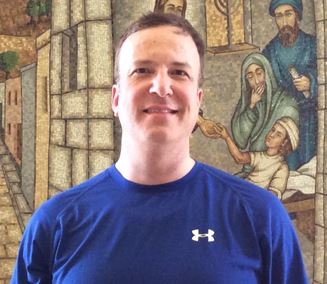 I’ve worked with many people who can’t seem to move forward because of a past failure or disappointment. It could be a marriage damaged by an affair. The injured spouse is not sure she (or he) can ever trust again. It could be after a personal failure. The person feels they will never recover, so they refuse to take another risk. They remain miserable, but they can’t seem to pull themselves out of the emotional hold they’ve placed on their life. They may not be able to internalize the truth of God’s grace in their life. It could be after a financial loss. The person can’t see that life will be any better than it is right now, so they refuse to invest or dream again. A line in the sand is where our core values intersect with real life situations.
I’ve worked with many people who can’t seem to move forward because of a past failure or disappointment. It could be a marriage damaged by an affair. The injured spouse is not sure she (or he) can ever trust again. It could be after a personal failure. The person feels they will never recover, so they refuse to take another risk. They remain miserable, but they can’t seem to pull themselves out of the emotional hold they’ve placed on their life. They may not be able to internalize the truth of God’s grace in their life. It could be after a financial loss. The person can’t see that life will be any better than it is right now, so they refuse to invest or dream again. A line in the sand is where our core values intersect with real life situations.
On this Fifth Sunday of Lent, we have an interesting image of Jesus stooped down and writing on the ground with His finger. The scribes and Pharisees have brought Him a woman caught in adultery. When they had set her in His midst, they said to Him, “Teacher, this woman was caught in adultery, in the very act.” Jesus acts as though He did not hear them. When they continued asking Him, He raised Himself up and said to them, “He who is without sin among you, let him throw a stone at her first.” Again, He stooped down and wrote on the ground. Then those who heard it, being convicted by their conscience, went out one by one, beginning with the oldest even to the last. And Jesus was left alone, the woman standing before him. When Jesus had raised Himself up and saw no one but the woman, He said to her, “Woman, where are those accusers of yours? Has no one condemned you?” She said, “No one, Lord.” And Jesus said to her, “Neither do I condemn you; go and sin no more.” (John 8:1-11).
We too live in a world that can divide us both from within and outside ourselves. The high calling of God requires that we learn to be forgivers now, in this life, through our faith in God that is working in each one of us through the Holy Spirit. We must not allow ourselves to remain or become hardened, calloused and coldhearted toward ourselves, others, and including those we perceive have done us or others wrong. Our ability to be forgiving toward others will continually grow more and more difficult if we allow ourselves to become hardened because of the sinfulness of our surroundings.
Pope Francis, preaching on this very Gospel, warns us that being religious doesn’t automatically translate into love of ourselves or our neighbor: It is not automatic! You may know the whole Bible, you may know all the liturgical rubrics, you may know all theology, but from this knowledge love is not automatic. There is no true worship if it is not translated into love and service to our neighbor. We cannot remain spectators to the suffering of so many people exhausted by hunger, violence and injustice. “What does it mean to ignore the suffering of others? It means to ignore God! If I do not draw close to that man, that woman, that child, that elderly man or woman who are suffering, I do not draw close to God.”
We have over spiritualized the word “love” so that it doesn’t make any deep and lasting demands on us. Christians have perfected the art of saying we love people when you would never know it from our actions: how we treat others, how we talk about them behind their back, and to their face. Where do we draw the line in the proverbial sand when it comes to forgiveness? What deed has someone done to us, our family, our friends or our world that sticks in our craw so we can’t forgive? When we think back about some of the painful occurrences of the recent past, which ones are we still harboring without forgiveness? When we hear of sins in others’ lives, which one or ones are we keeping in the file drawer tabbed “unforgiven and unforgotten”? What would Jesus write in the sand about you or me?
Kino Border Initiative
This weekend we welcome Fr. Sean Carroll, SJ who will speak at all Masses. Fr. Sean is the Executive Director of the Kino Border Initiative in Nogales, AZ and Nogales, Sonora, Mexico. He will share information about KBI and his experiences working with immigrants on the US and Mexico borders. Please extend a warm Holy Family welcome to him!